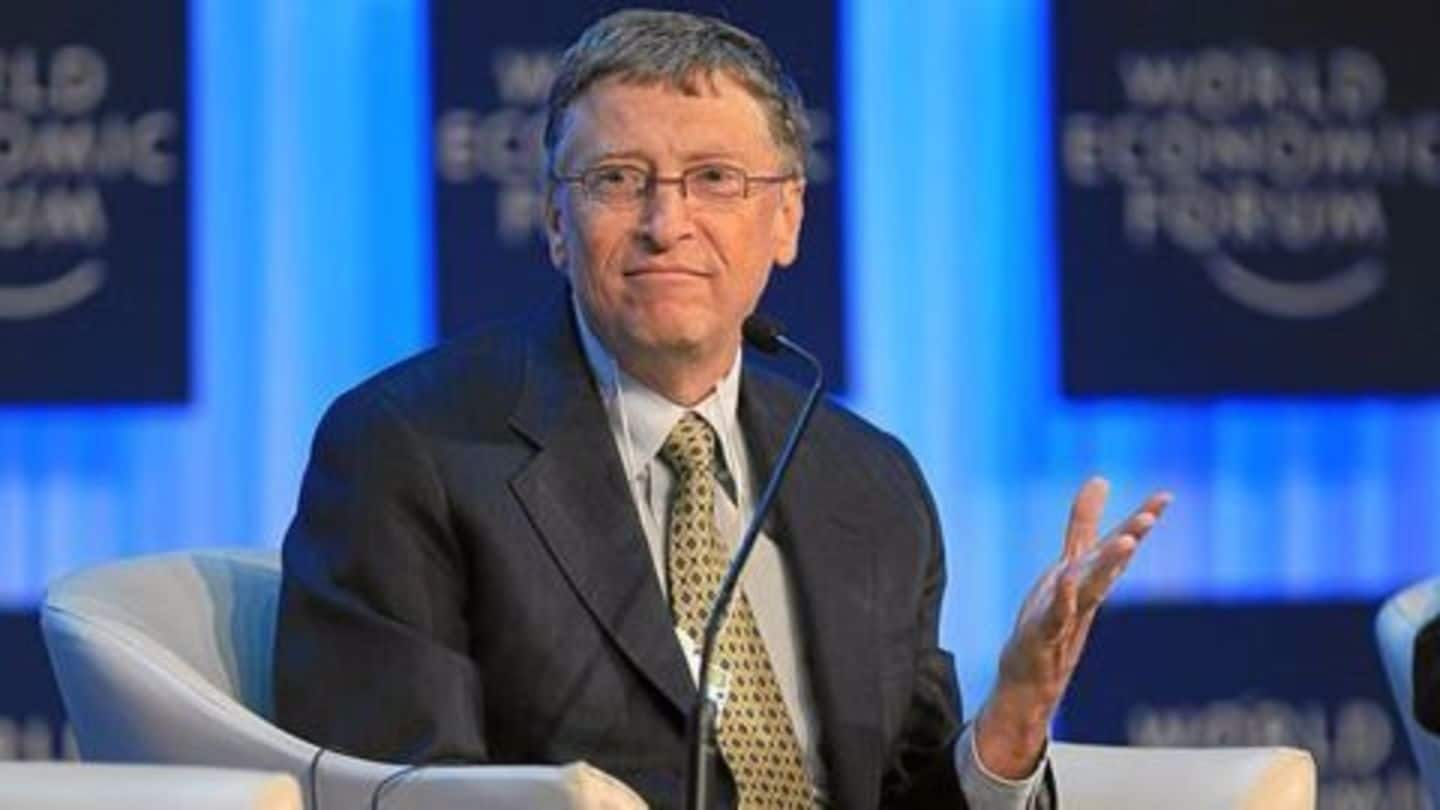
On Mandela day, Bill Gates pledges $5 billion
What's the story
Microsoft co-founder Bill Gates announced that 'Bill& Melinda Gates Foundation' will invest $5 billion over next five years, in Africa. This was in addition to $9 billion they had already invested in the African continent. In the pledge ahead of the Mandela day, Gates called on the African leaders to work towards realizing Mandela's dream of providing bright future for the youth.
Introduction
Early life of Mandela
Nelson 'Rolihlahla' Mandela from Madiba clan was born in village of Mvezo, in Transkei, South Africa, on July 18, 1918. He belonged to Thembu tribe, where Xhosa language is spoken. Mandela was educated at the Methodist Church Schools, and went to study at Fort Hare university (where he got expelled for leading a strike) and University Witwatersrand, where he completed law.
Do you know?
Mandela's original name wasn't Nelson
Rolihlahla Mandela was given the name 'Nelson' by a teacher at his primary school, in accordance with the custom of giving 'Christian' names to all school children.
Politics
Entry into politics
Mandela actively got involved in politics, in 1944, when he joined African National Congress (ANC). ANC's goal was to fight for the rights of people of colour in South Africa. In 1948, with National Party elected to power, the apartheid system became law. This radicalized Mandela further. He organized demonstrations against the government, the most notable among which was 1952 Defiance campaign.
Information
What is the apartheid system?
Apartheid was a repressive racial segregation system in South Africa created to maintain white domination. This ensured racial and territorial separation where people of colour (black people and people from other races) did not have same rights - political and economic, as white people.
Imprisonment
Mandela's imprisonment
Charged with treason, Mandela was acquitted after the 1956-1961 trial. ANC was officially banned in 1960. In response to Sharpeville massacre that killed 69 protesters, Mandela founded Umkhonto we sizwe, armed wing of ANC. In 1962, Mandela was sentenced to 5 years in jail. The next year he underwent a trial for treason, and acts of violence which resulted in life imprisonment.
Prison life
Life in prison
Mandela started his jail sentence at Robben Island, a maximum security prison and was kept there until 1984 when he was moved to Pollsmoor prison. Mandela's reputation grew during his time in prison and became a remarkable black leader, symbolic of the anti-apartheid movement. He wrote his autobiography 'Long Walk to Freedom', while in prison. It was published later, in 1995.
Nobel Prize for Peace
Release from prison and Nobel Prize
Due to international pressure and ANC's relentless campaign to free Mandela, he was released on Feb 11, 1990. F.W. de Klerk, the then South African President, also removed the ban on ANC and anti-apartheid groups. Nelson Mandela along with President de klerk who played a major part in dismantling apartheid institutions, jointly received Nobel Peace Prize for the year 1993.
Data
Mandela's presidency
After release, Mandela headed the ANC, took part in the elections in 1994, to become the country's first black President. He presided for one term up to 1999, when he retired.
Demise
Final days of Nelson Mandela
In 2004, Mandela retired from public life due to deteriorating health. In 2009, UN General Assembly paid tribute to Mandela by announcing his birthday, July 18, as the Mandela Day. Mandela's last public appearance was in Johannesburg, at the final of 2010 FIFA World Cup. Hospitalized in 2011, Mandela continued to to be ill, with his final demise on 5 December 2013.